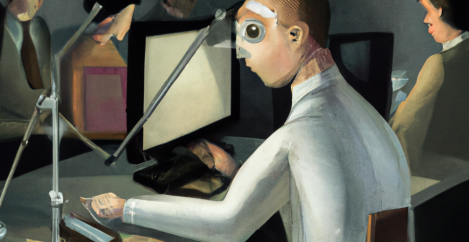September 22, 2025
Workers voice concerns over AI in the workplace, think it makes them less intelligent
 A new survey claims to highlight growing unease among employees about the impact of artificial intelligence on their working lives, with many reporting fears of skill loss, job insecurity and reduced human interaction, as well as brain rot. The research, carried out by Howdy in August 2025 among 1,007 full-time workers aged 19 to 77, found that while the majority are already using AI tools in some form, significant numbers are questioning the consequences. Around one in four believe they risk losing critical abilities through over-reliance on artificial intelligence, while a fifth said the technology already makes them less capable. A smaller group, around 10 percent, said they now rely entirely on AI to perform their jobs.
A new survey claims to highlight growing unease among employees about the impact of artificial intelligence on their working lives, with many reporting fears of skill loss, job insecurity and reduced human interaction, as well as brain rot. The research, carried out by Howdy in August 2025 among 1,007 full-time workers aged 19 to 77, found that while the majority are already using AI tools in some form, significant numbers are questioning the consequences. Around one in four believe they risk losing critical abilities through over-reliance on artificial intelligence, while a fifth said the technology already makes them less capable. A smaller group, around 10 percent, said they now rely entirely on AI to perform their jobs.
The study also tested perceptions of digital literacy. While almost two-thirds of respondents said they could identify AI-generated images, only one third succeeded in practice. At the same time, 37 percent expressed concern that the rapid growth of artificial intelligence could create an economic bubble, with nearly one in five doubting the sustainability of their employer’s technology strategy. Another 19 percent fear job loss through redundancy.
Employees are taking steps to adapt, with 32 percent actively upskilling and 17 percent considering further study. The survey also points to changes in workplace culture. Nineteen percent admitted concealing their use of AI from colleagues, while almost one in five said they interact with artificial intelligence more than with co-workers. A fifth said they prefer AI conversations to human ones. Among remote workers, those figures rise higher, with nearly a third saying they talk more with artificial intelligence than with colleagues.
Generational differences are also apparent. More than a quarter of Generation Z employees believe AI makes them less intelligent, while 14 percent rely entirely on it for their roles. Almost half said AI is becoming more central to their lives.














